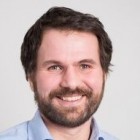Learning Cafés LEC426
Become a Pro Self-publisher of High-quality Interactive Online Courses
Date Thursday, Dec 3 Time – Room:
You will learn a bit Markdown, a simple text notation that is used for faster blogging and documentation (you can even apply it to format your WhatsApp messages), but now it can be used to create interactive online courses, slides, and textbooks. The user simply selects her/his preferred presentation format. We will show how to create narrated LiaScript courses with auto-generated spoken output, animations, quizzes, interactive diagrams and various kinds of further interactive elements. We will create cooperatively on a free and open-source online-editor (CodiLIA) and show how you can set up your own one instance. Everything is for free, decentralized, without any further costs and logins.
With your conference ticket you can attend and participate in all conference sessions. Please note though, that the number of seats for Learning Cafés and for Knowledge Exchanges are limited to allow for maximum interaction and dialogue.

André Dietrich
Researcher, Technische Universität Bergakademie Freiberg, Germany
I am originally a robotics and embedded software developer at the University of Magdeburg, who became obsessed with programming paradigms.
Due to my participation in the “Industrial eLab” project, which tries to make university hardware online accessible to students anytime and anywhere, I had to shift to web-development.
Developing educational content for this purpose with the common Learning Management Systems (LMS) and authoring-tools was simply not satisfying and did not meet my expectations. So I started to design my own “markup” language for creating free and open educational content that integrates everything that I liked or missed from other authoring systems ...
Links

Sebastian Zug
Professor, TU Bergakademie Freiberg, Germany
Sebastian Zug is a Professor at the TU Bergakademie Freiberg. His research interests are focused on outdoor robotics and self-describing, intelligent components.
Based on a broad experience in bachelor and master course in programming and embedded systems, he develops new concepts for practical oriented engineering courses. This includes new open source course materials including interactive programming sessions, simulation tools and remote access on laborartory equipments. Sebastian Zug is the coordinator of two national projects addressing challenges of remote laboratories and eLearning environments.